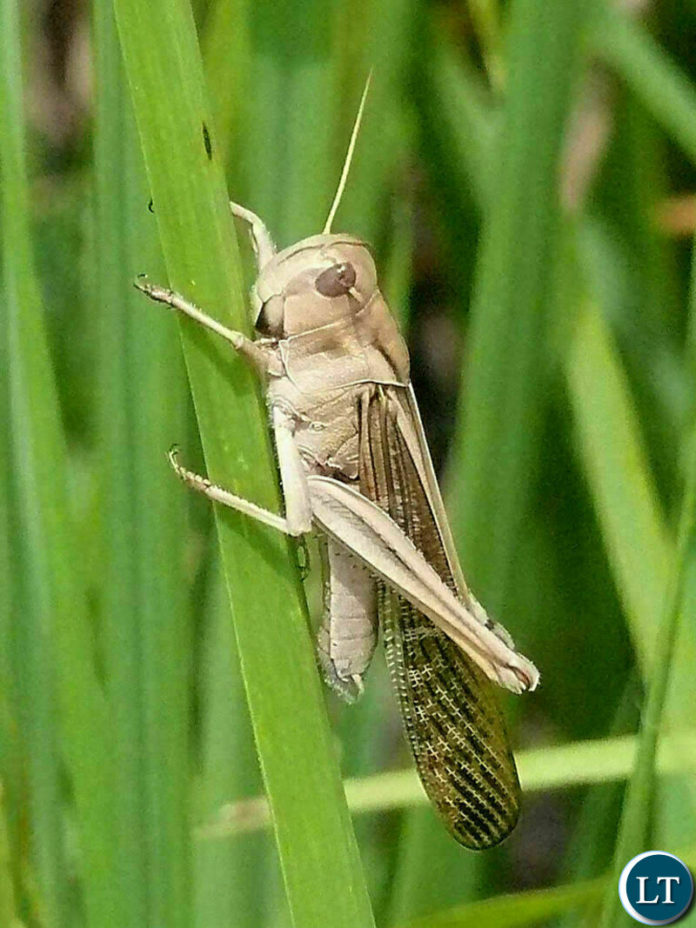At least four Southern African countries namely Zambia, Botswana, Namibia and Zimbabwe are facing serious outbreaks of African Migratory Locust.
The outbreak is threatening the winter crops and the main planting season due to start in October.
Seven million people who are still recovering from the impact of the 2019 drought, may experience further food insecurity and following crop damage from the AML.
The Food and Agriculture Organization of the United Nations (FAO) is working closely with the Southern African Development Community (SADC) and the International Red Locust Control Organization for Central and Southern Africa (IRLCO-CSA) to support the affected countries to respond to the locust outbreaks.
The IRLCO-CSA however primarily focuses on the control of a different locust pest: the Red Locust.
Awareness of the situation is low due to the absence of dedicated national locust units and, consequently, a lack of regular monitoring and reporting.
FAO promotes preventive strategies for locust management, which rely on early warning and early reactions.
Delaying the response would prove more costly financially, environmentally, socially and economically.
The build-up and spread of the pest could exacerbate the impacts of COVID-19 and threaten the next planting season.
Urgent actions are needed to identify locust hotspots and ensure the pest is controlled in them.
The capacity of countries to monitor the spread of the pest through regular surveillance and mapping should be enhanced in order to increase their ability to take timely and anticipatory action to prevent the pest from causing serious damage to crops and pastures.
The impacts of COVID-19 and restrictions on movement are hampering effective monitoring of the evolution of the pest populations.
The 2020/21 la Niña event could accelerate the multiplication of the AML in the affected areas and increase the threat it poses to crops, grazing and livelihoods.



This is a catastrophe in the making. It requires concerted efforts in the affected countries to contain the hoppers. The ZAF can be deployed to spray the pest and whatever happened to The Zambia Red Locust Monitoring Centre???
Locusts is money. PF has empowerment fund, collect mosquito nets, load women and youth in Malanje’s $250000 youth bus, go set up camps in western province. Control locusts. Bring bags of locusts to markets!! Money and nutrition to Zambians.
Anyway, only wise men like Mulyokela think like me.
LOCUSTS HAVE THE RIGHT TO LIFE TOO… WE NEED TO ACCOMMODATE THEM
Only Africans are generally dull , this out break can be turned into an opportunity.,,,,…
commercial trapping of locusts can be a source of high value Human and animal feed…..
If this was happening in Asian countries , like China, Vietnam…..they would have exploited this source of protein , even exported to Africa
Locusts outbreak in Zambia, that’s laughable if you asked me, we only need salt and nshima to control the outbreak.iyo ni ndiyo.
I’m breaker and I approve this message
God redirect them to hh farm
Just eat them iwe Kaizar, why waste money on Nawakwi’s sausages ala.
Comments are closed.